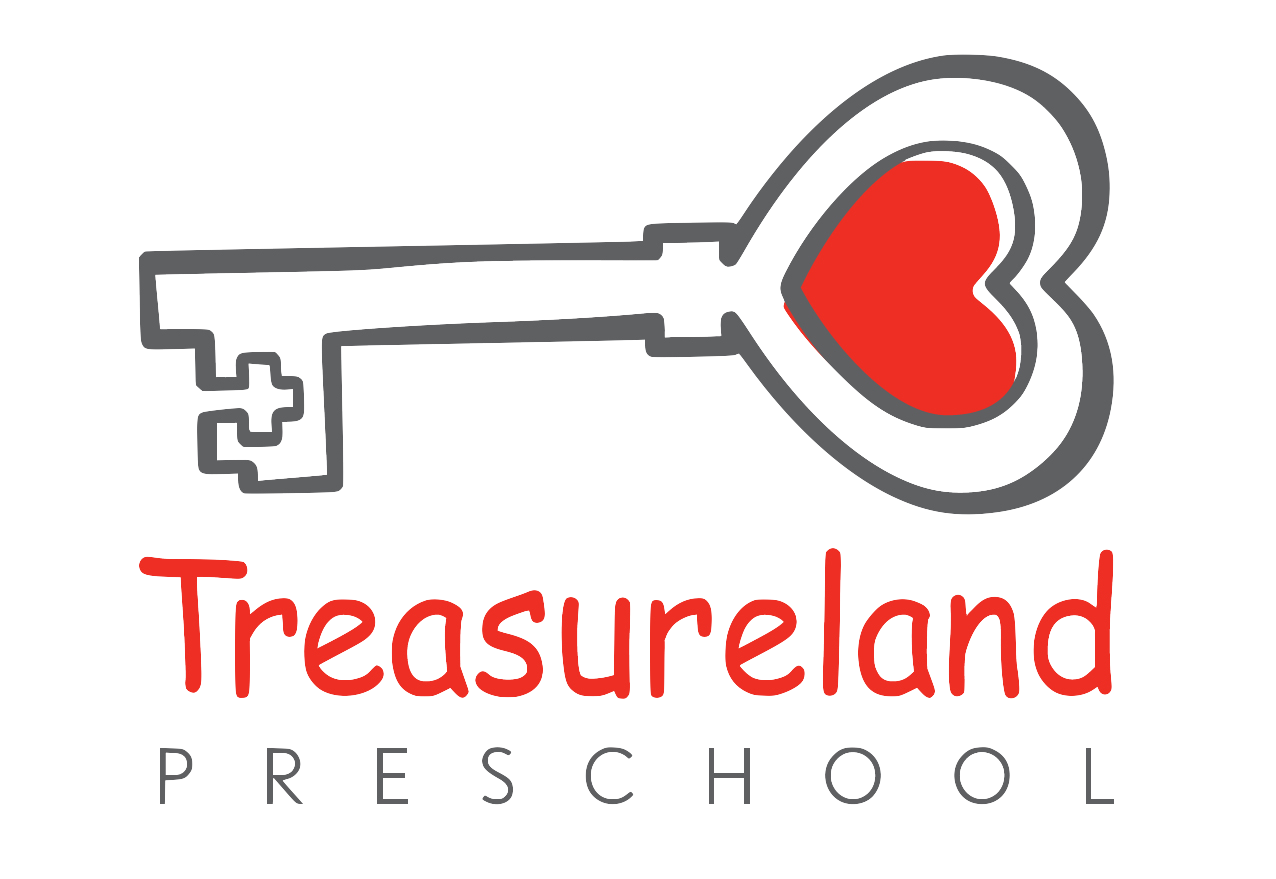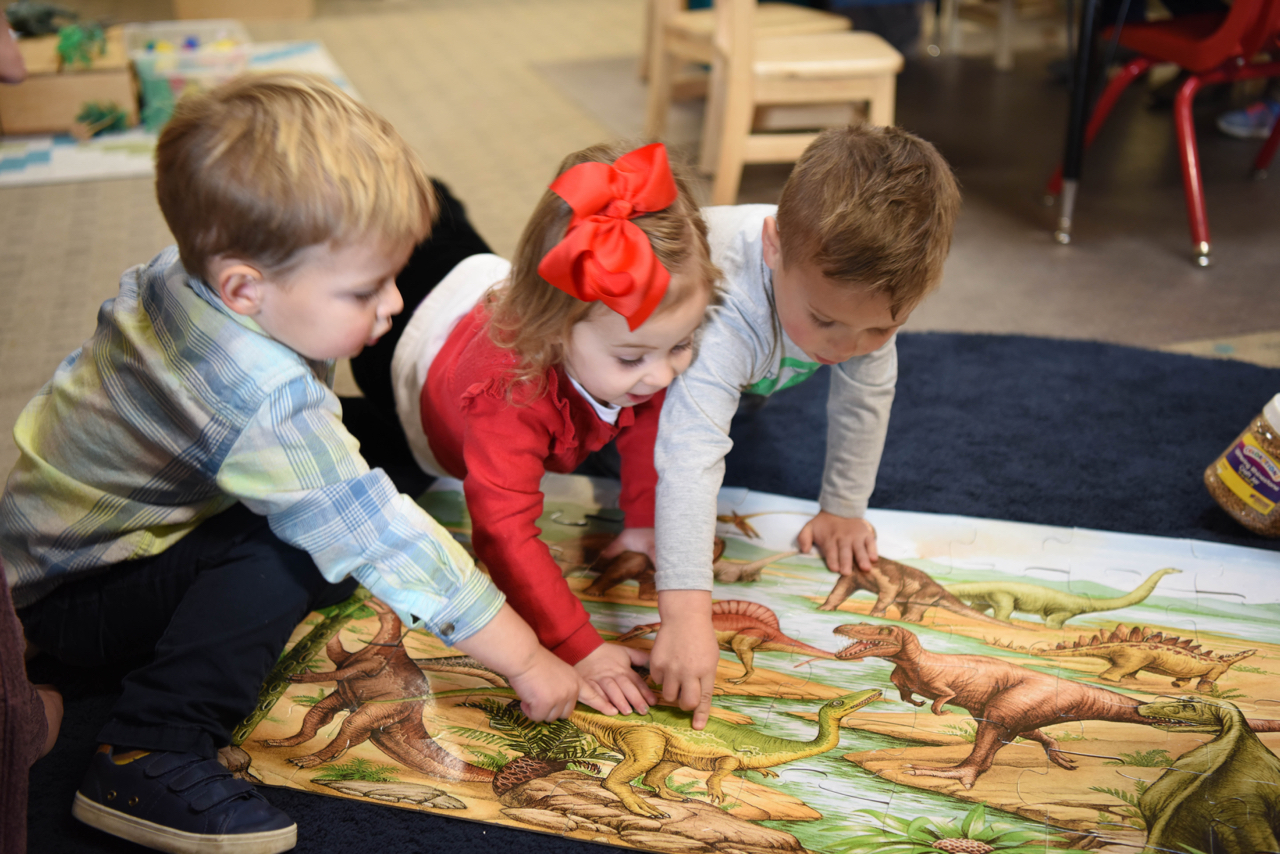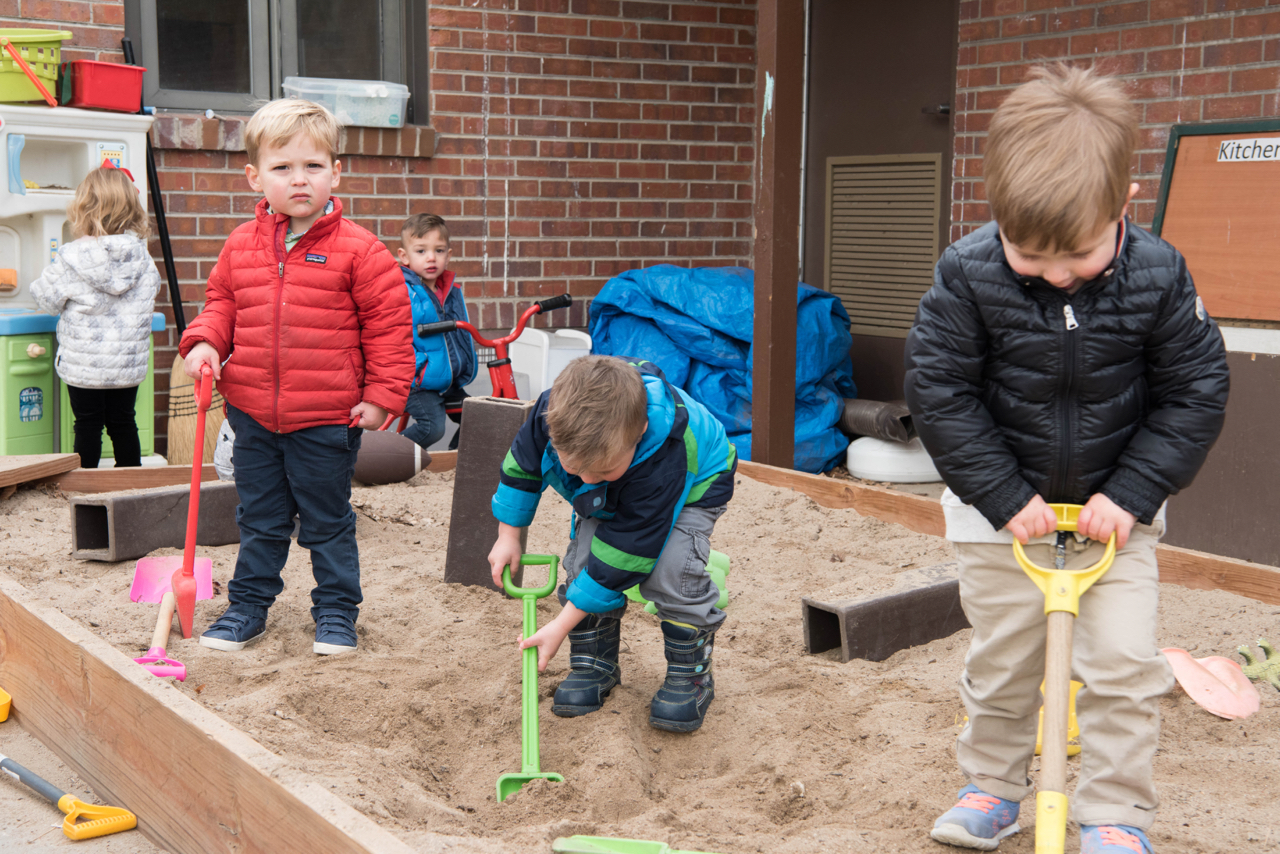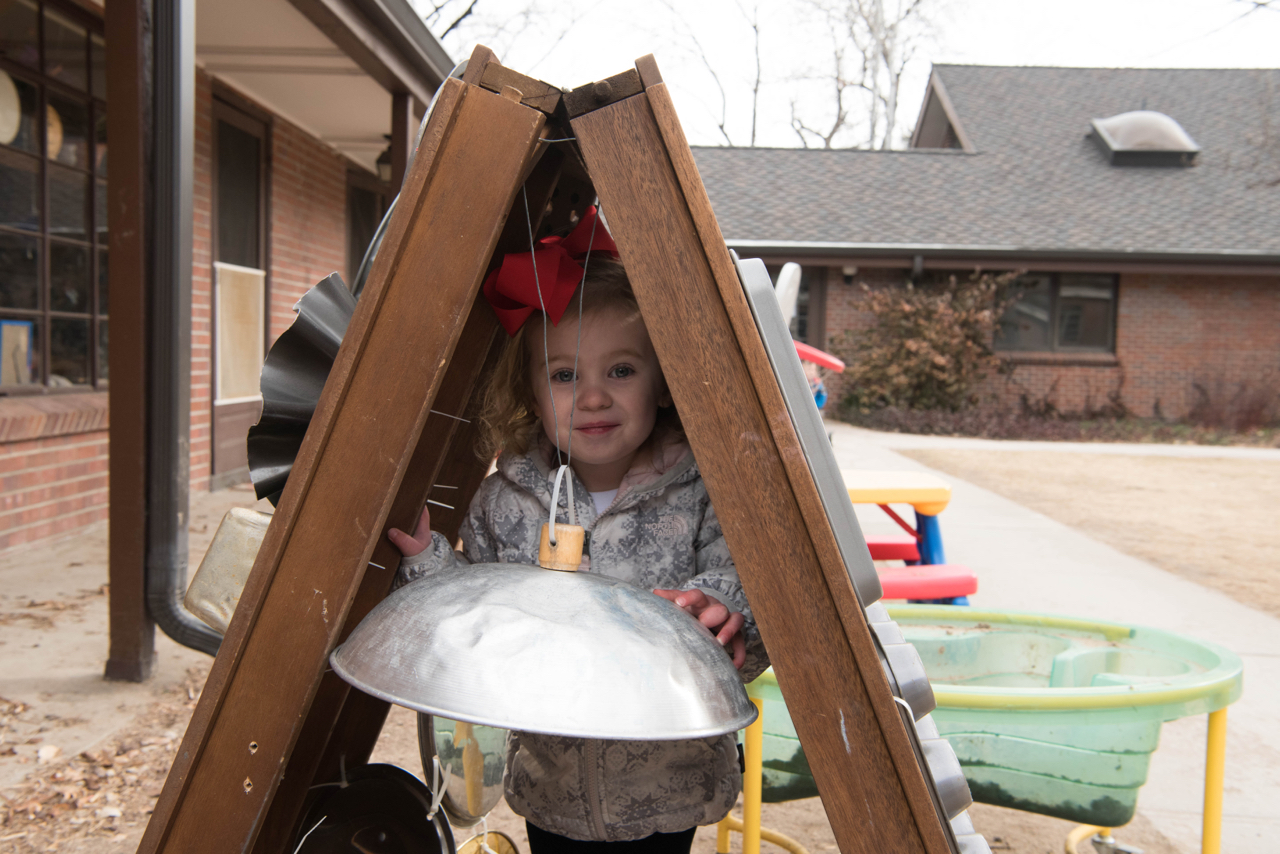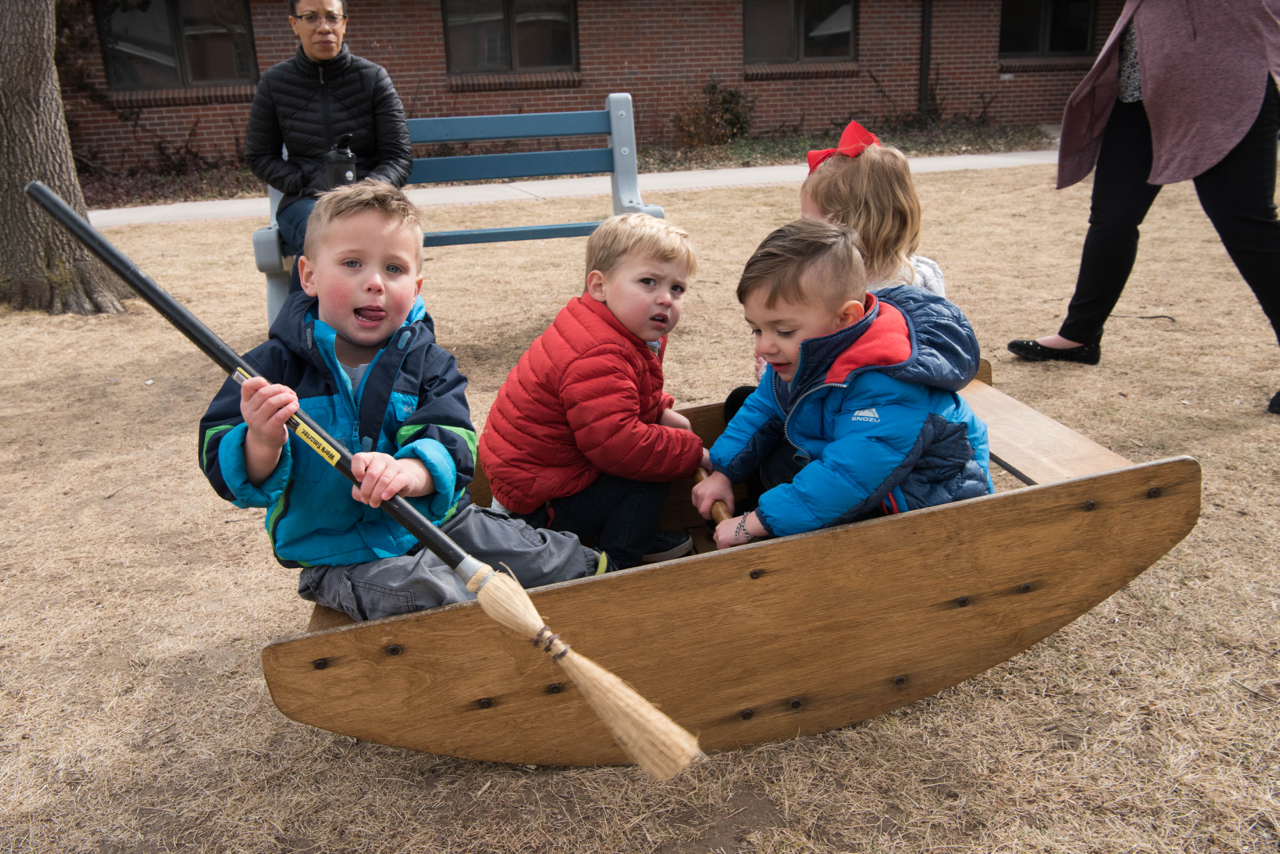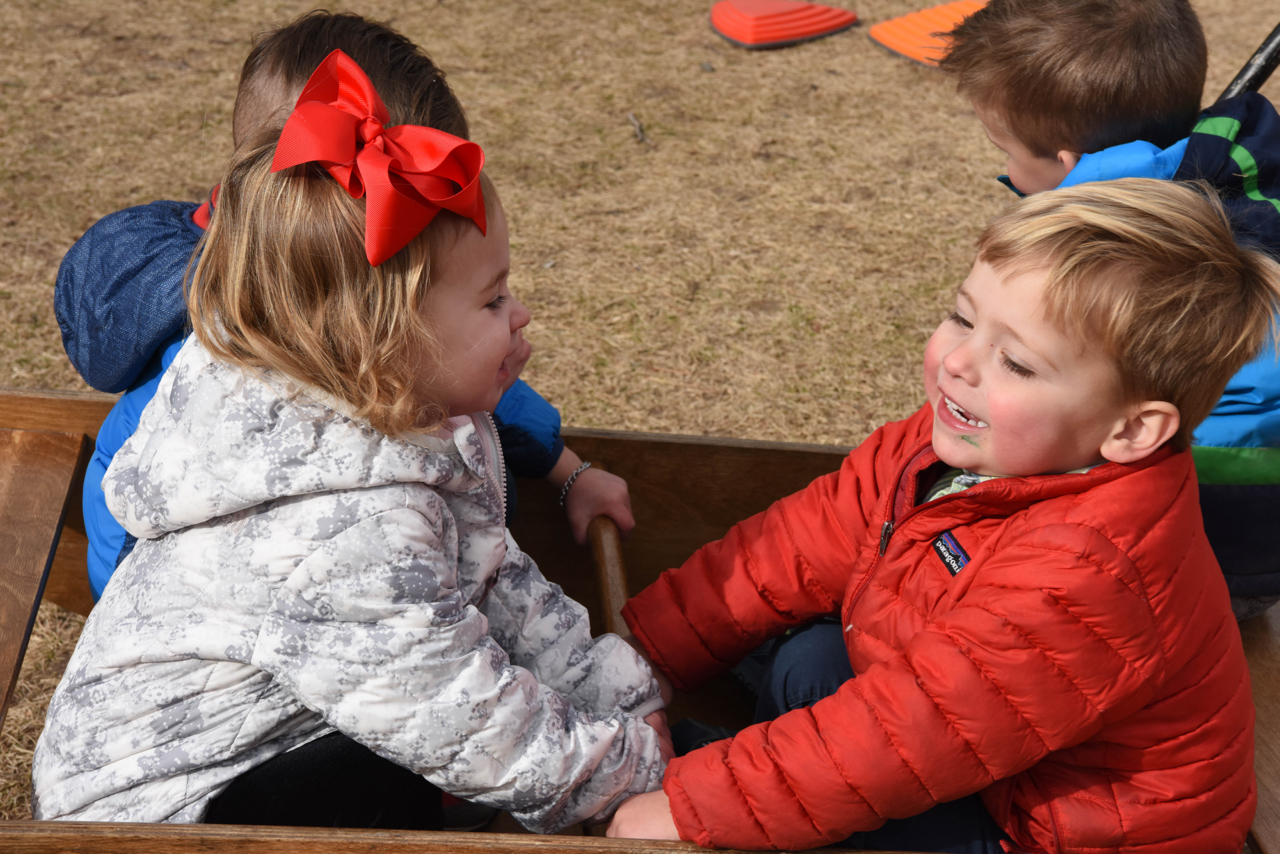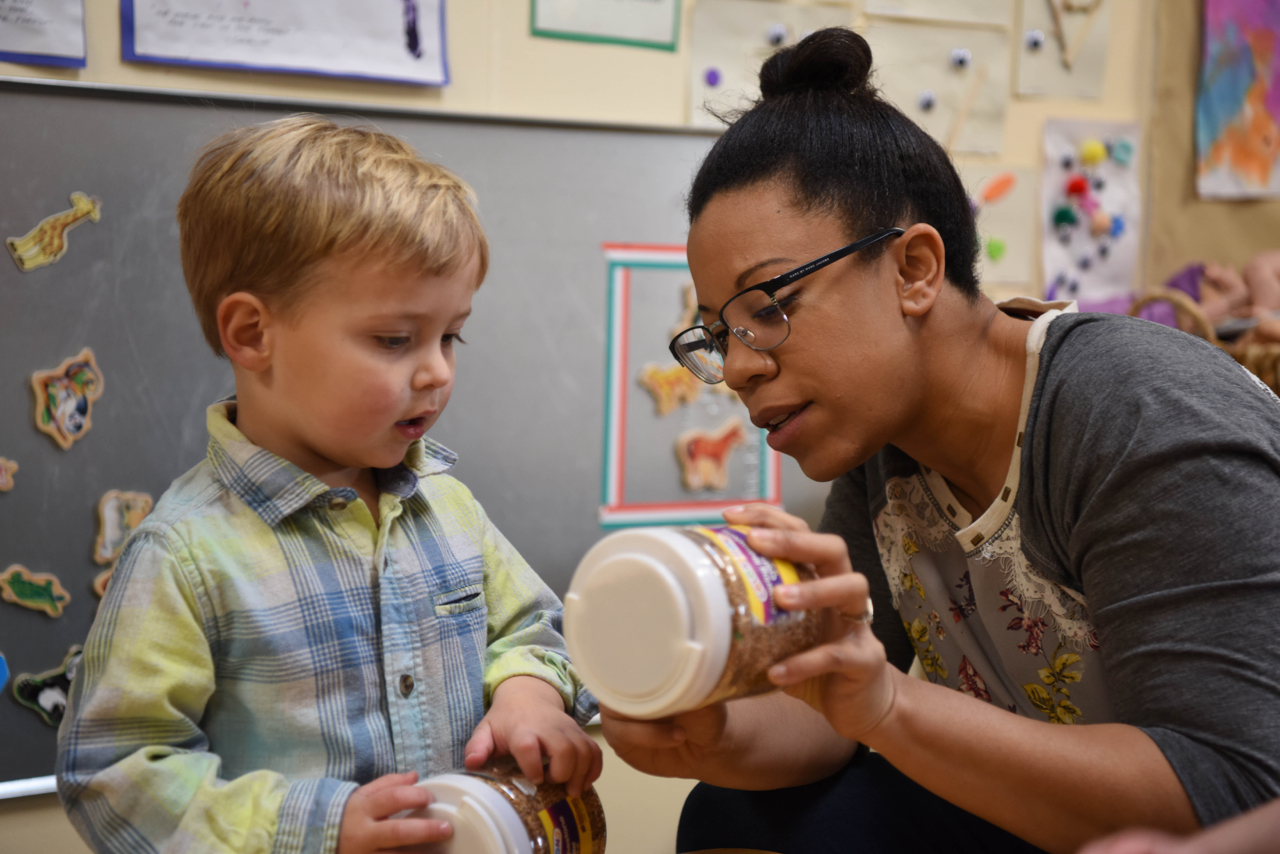Early Preschool
Building Connections and Strengthening Relationships
EARLY PRESCHOOL: 2 years old by October 1
Activities promoting interactions with others are created; they are crucial to a child’s learning, so are frequent and varied. Materials and experiences to foster simple problem solving through trial and error and nurture practice for mastery of a task are provided. Exploration of art media encourages learning through the senses. Modeling of complex language promotes the desire to learn through “how”, “what” and “why” questioning. Opportunities for sustained pretend play entice children to process their experiences.
Class is held from 9 AM - 1 PM. For class offerings and tuition please click here.
About Early Preschool Children.
Two and a half year-olds are gaining a strong sense of self-identity. They continue to exert control over their environment and like to discover by testing to further their understanding of the world around them. The ability to communicate their needs, wants and desires increases as well as concept development. The curriculum for these children is based on our knowledge of their developmental growth in the following areas:
SOCIAL EMOTIONAL: Older toddlers increasingly interact with adults and peers to solve problems; they engage in more complex ways and begin to develop friendships. Older toddlers become more adept at expressing their emotions, they understand others’ feelings a bit more. Empathy is better demonstrated. Older toddlers continue to seek close adult relationships and seek them out when distressed. Children this age like to help in simple ways.
PLAY: Older toddlers’ play is mostly parallel, when children play side-by-side with peers, without interaction, while paying attention to each other. This is the beginning of their desire to be with other children. As they mature, children often engage in more cooperative play, when they are involved with others in the same activity. They assume roles with peers and engage in more complex symbolic play, often demonstrating an understanding of emotions by acting them out in pretend play.
MOTOR: Gross motor play for older toddlers includes more coordination, ease of movement and exhibiting a variety of more complex movements. They continue to integrate information about their environment through their senses, pressing and pushing with more force, walking and carrying with additional care. Fine motor skills are increasingly more coordinated, and older toddlers use their fingers and hands to manipulate objects with more sophisticated dexterity.
LANGUAGE AND LITERACY: Older toddlers love to be read to, imitate what they hear and repeat some of the simple language in books. They listen and ask questions or comment about what is being read. Looking at books is a welcome pastime. They combine words to make sentences and communicate in a way that most adults can understand. Reciprocal conversation is frequent.
COGNITIVE: Children at this age develop an understanding of cause and effect and make predictions about what will happen. Conceptual words describing size, location and quantity are used, and 2-3 piece puzzles are completed. Imitation and repetition is common. Older toddlers classify objects based on one attribute and group similar objects. They are more purposeful in their actions to achieve a goal or desired outcome. Attention span is maintained for several minutes.
